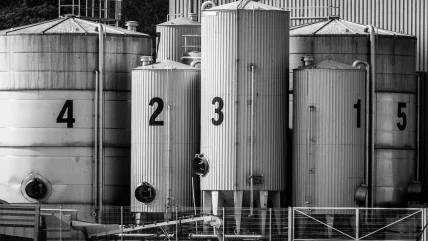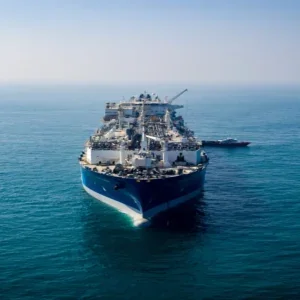
Shell International Trading Middle East Fze (Shell) and Türkiye’s Boru Hatları ile Petrol Taşıma AŞ (BOTAŞ) have signed a ten-year agreement through which Shell will supply BOTAŞ with up to 4 billion cubic metres of liquefied natural gas (LNG) a year from its US and global portfolio, with deliveries starting in 2027.
The agreement was signed by Abdulvahit Fidan, BOTAŞ Chairman and General Manager, and Tom Summers, Senior Vice President of Shell LNG Marketing and Trading, during a ceremony under the auspices of Alparslan Bayraktar, the Republic of Türkiye’s Minister of Energy and Natural Resources, and with the participation of Shell CEO Wael Sawan.
The deal will enable BOTAŞ to expand its LNG access and use its extensive terminal and pipeline infrastructure to help Türkiye to diversify its gas resources and become a major regional gas hub.
Minister Bayraktar said: “Our goal in natural gas, 99% of which we imported until the discovery of Black Sea Gas, is to diversify the supply side and offer natural gas to our citizens and industry in a more competitive and affordable rate. In this context, we have strengthened our infrastructure with international pipelines, LNG terminals and underground storage projects.
The LNG supply agreement signed with Shell today will increase the diversity and flexibility of our portfolio. We are also pleased that BOTAŞ will acquire new capabilities in the field of LNG transport via ships by receiving the LNG at the loading port within the scope of the agreement. Such agreements make significant contributions to the supply security of not only our country but also the region.”
Wael Sawan, Chief Executive Officer of Shell PLC, said: “Building on 100 years of Shell in Türkiye, we are pleased to work with BOTAŞ and supply LNG as it diversifies Turkiye’s sources of natural gas. LNG offers a flexible and reliable source of energy and has a vital role to play in the transition to a lower carbon energy system.”
As a leading LNG supplier, Shell plans to grow its LNG business by 20-30% by 2030, compared with 2022, strongly positioning the company to deliver value as we move towards becoming a net-zero emissions energy business by 2050.






